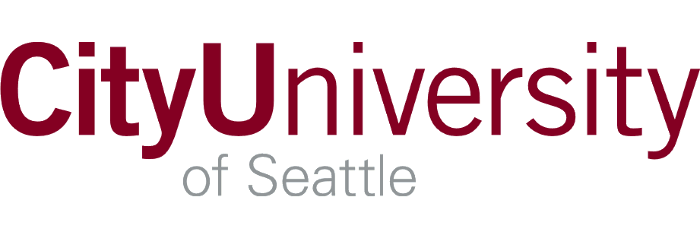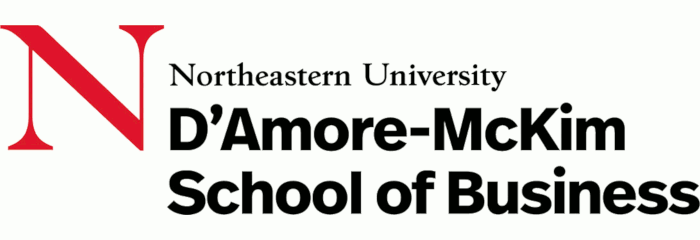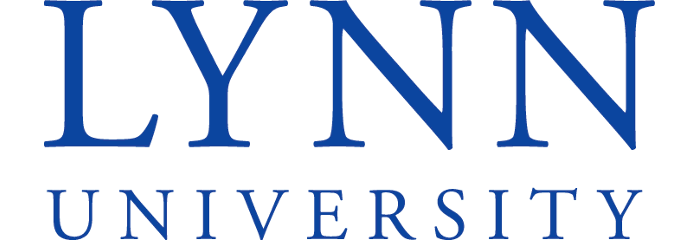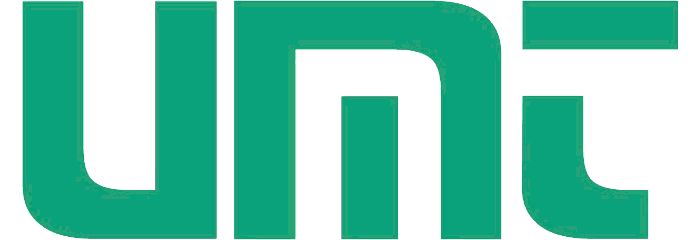2022 Best Online Business Degree Programs
ON THIS PAGE
BA vs BS Courses Concentrations Accreditation Cost Careers Worth It?Below you'll find a list of the best online business degree programs at the bachelor's level. An online business degree is one of the most common degrees in the US. They provide students with a foundational education that allows them to enter the workforce in their preferred area of commerce. Most business degrees offer specialization paths for you to choose from, such as marketing or business administration. Furthermore, each university may offer a specific program that fits your career goals, so it's important to carefully consider each option based on where you see yourself working in the business world. Many business school graduates often go on to become entrepreneurs or company leaders, while others may seek advanced studies in finance, law, or economics.
View our methodology for more details about rankings or learn more about OnlineU.
Learn more about how we make money. ">ADVERTISEMENT
Online Business Bachelor's Degrees You May Be Interested In

Arizona State University
Annual Tuition: $19,398 - $29,428
39 Programs (view all)

Southern New Hampshire University Online
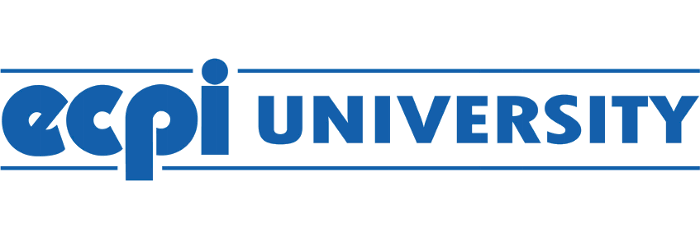
ECPI University Online
Annual Tuition: $16,639
2 Programs (view all)
2022 Best Online Business Degree Programs
| Rank | School | Salary Score | Median Starting Salary |
|---|---|---|---|
| City University of Seattle | $79,719 | ||
| Golden Gate University | 91 | $67,879 | |
| Alvernia University | 90 | $66,259 | |
| Northeastern University | 89 | $65,635 | |
| Capella University | 88 | $63,636 | |
| Lynn University | 87 | $61,513 | |
| University of Management and Technology | 86 | $60,399 | |
| Lipscomb University | 86 | $59,514 | |
| Colorado State University Global | 86 | $59,425 | |
| Thomas Edison State University | 86 | $59,206 |
2022 Online Colleges Offering Bachelor's Degrees
Ranking Details
#1 City University of Seattle
- Salary Score: 95
- Median Starting Salary: $79,719
- Locations: Seattle (WA)
- Accreditation: NWCCU
The City University of Seattle (CityU) is a small nonprofit that offers an online Bachelor of Science in Business Administration program requiring 180 credit hours. The curriculum focuses on core business courses with specialized areas of study, such as Global Supply Chain Management or Project Management. Some core classes include Business Communications and Strategic Management. These programs also feature a unique core curriculum with studies in Artificial Intelligence Business Applications. To graduate, students must finish 90 lower-division credits and 25 upper-division electives, which can take four years total with a full-time schedule. Graduates may then apply for careers in business analytics, operations management, and marketing.
At CityU, students use the digital learning platform, Brightspace, to access their coursework, which is fully online. Online students also have access to virtual advisors for support.
#2 Golden Gate University
- Salary Score: 91
- Median Starting Salary: $67,879
- Locations: San Francisco (CA)
- Accreditation: WSCUC
Golden Gate University (GGU) is a small nonprofit that offers an online Bachelor of Science in Business requiring 123 credit hours. The curriculum aims to provide students with a broad understanding of business-related issues, such as defining success and identifying opportunities. Some core concentrations in this major include Human Resources Management, Accounting, and Information Technology. To graduate, students must complete 60 general education credits, 30 major units, and 33 general electives, which can take four years with a full-time schedule. Alumni enter industries ranging from finance and operations to marketing and data analytics.
GGU students use Blackboard to access their online coursework. They offer a hybrid format that allows students to study either in-person or online. Although, certain classes may require in-person learning. Students also have access to advising and tutoring services as well as online bookstores.
#3 Alvernia University
- Salary Score: 90
- Median Starting Salary: $66,259
- Locations: Reading (PA)
- Accreditation: MSCHE
Alvernia University (AU) is a medium-sized nonprofit that offers an online Bachelor of Science in Management requiring 123 credit hours. The curriculum aims to provide students with a broad understanding of organizational structures and team management techniques. Some core classes for this major include Financial Accounting, Marketing Principles, and Business Law. To graduate, students must complete a core liberal arts curriculum, 57 major credits, and community service, which typically takes four years with a full-time schedule. Graduates may enter careers in operations management, business consulting, or human resources management.
At AU, students use Blackboard to access their coursework, which is fully online. Additionally, online students have access to digital libraries and shops as well as Alvernia's Office of Career Development.
#4 Northeastern University
- Salary Score: 89
- Median Starting Salary: $65,635
- Locations: Burlington (MA)
- Accreditation: NECHE
Northeastern University (NU) is a large nonprofit that offers three online Bachelor of Science programs which focus on business management: (1) The Bachelor of Science in Finance and Accounting Management, (2) Bachelor of Science in Management, and (3) Bachelor of Science in Project Management all offer core, introductory courses in business. Each program requires 120 credit hours, which can be completed in four years on a full-time schedule. The curricula teaches students about organizational behavior, economics, and marketing. Specialized areas of study for Finance and Accounting Management include Principles of Taxation and Business Strategy, while a bachelor's in management features core classes such as New Venture Creation and Supply Chain Management. To graduate, students must complete all program requirements — including up to 66 foundation credits, 21-31 major credits, concentration, and general elective credits. Alumni are qualified to apply for a wide array of business management and analyst roles.
At NU, students use Canvas, a digital learning platform, to access their coursework, which is fully online.
#5 Capella University
- Salary Score: 88
- Median Starting Salary: $63,636
- Locations: Minneapolis (MN)
- Accreditation: HLC
Capella University (CU) is a medium-sized, private institution that offers an online Bachelor of Science in Business requiring 180 credit hours. They have nine specialization pathways, such as accounting, business administration, finance, and project management. Each educational path offers general education courses and core business courses along with a curriculum aimed at your specialization. In Business Administration, for example, you'll take courses such as Fundamentals of Leadership and E-Marketing, while Finance offers Entrepreneurial Finance and Investments. To graduate, students must complete eight specialization courses and one capstone. Graduates may go on to explore careers in business, finance, marketing, or sales.
CU students use Blackboard to access their coursework, which is fully online. Overall, students may take four years to complete their degree with a full-time schedule. Some Capella University programs include FlexPath, which allows students to adjust their course deadlines and tuition payment schedules to fit their needs. Additionally, online students have access to a digital library, online tutoring, and online writing centers.
#6 Lynn University
- Salary Score: 87
- Median Starting Salary: $61,513
- Locations: Boca Raton (FL)
- Accreditation: SACS COC
Lynn University (LU) is a medium-sized nonprofit that offers an online Bachelor of Science in Business Administration requiring 120 credit hours. The curriculum aims to provide students with a general understanding of the modern business world — including marketing, investing, and human resources. Some core classes in this major include Computer Applications and Ethical Decision Making. To graduate, students must complete all core curriculum requirements, plus 51 major credits and three upper-level electives. This can take four years with a full-time schedule. Graduates enter communication, construction, health care, and government industries.
LU also offers a Bachelor of Science in Entrepreneurship that focuses on strategic innovation in business, and a Bachelor of Science in Marketing, where you'll develop an understanding of marketing trends and create a personal portfolio to launch your career.
At LU, students use iTunes U to access their coursework, which is entirely online. For a fee, online students have access to an iPad with pre-loaded learning tools.
#7 University of Management and Technology
- Salary Score: 86
- Median Starting Salary: $60,399
- Locations: Arlington (VA)
- Accreditation: DEAC
University of Management and Technology (UMT) is a small, for-profit institution that offers an online Bachelor of Business Administration requiring 120 credit hours. The curriculum aims to help students learn about fundamental business disciplines. Some core classes in this major include Accounting for Managers, Principles of Finance, and Legal Environment for Business. To graduate, students must complete all general education requirements alongside business administration courses, major courses, and three capstone credit hours. All of this can take four years at a full-time pace. Graduates may enter careers in IT, international logistics management, or marketing.
At UMT, students can complete their coursework fully online using a variety of multimedia sources.
#8 Lipscomb University
- Salary Score: 86
- Median Starting Salary: $59,514
- Locations: Nashville (TN)
- Accreditation: SACS COC
Lipscomb University is a medium-sized nonprofit that offers an online Bachelor of Arts, Science, or Professional Studies in Business Leadership requiring 126 credit hours. In this degree, faculty teach students about business fundamentals, such as accounting, management, and economics. Some core classes include Applied Organization and Planning and Applied Relationship Building. To graduate, students must pass leadership and major courses and earn specialized certificates, which can all take four years with a full-time schedule. Graduates may explore careers in business administration and entrepreneurship. Lipscomb University also offers a Bachelor of Science in Business Leadership, which requires core classes in math and science rather than liberal arts. Additionally, there's a Bachelor of Professional Studies in Business Leadership which is tailored toward career development in the business sector.
At Lipscomb University, students use Canvas to access their coursework, which is entirely online. Online students have access to live text services for convenient support.
#9 Colorado State University Global
- Salary Score: 86
- Median Starting Salary: $59,425
- Locations: Greenwood Village (CO)
- Accreditation: HLC
Colorado State University Global (CSU Global) is a medium-sized, public institution that offers an online Bachelor of Science in Business Management requiring 120 credit hours. Faculty develop the curriculum to train students in management, operations, marketing, economics, and statistics. Some core concentrations for this major include Business Law, Principles of Management and Project Management. To graduate, students must complete all program requirements, including 31 general education credits, 30 core degree credits, and specialized electives. This can take four years with a full-time schedule. Alumni are prepared for careers as data analysts, forensic accountants, or project managers. CSU Global also offers similar online courses in business such as Bachelor of Science in Project Management, Bachelor of Science in Organizational Leadership, or Bachelor of Science in Management Information Systems and Business Analytics.
At CSU Global, students use Canvas to access their classroom materials, which are all fully online. They also have access to live tutors, online libraries, and career coaching.
#10 Thomas Edison State University
- Salary Score: 86
- Median Starting Salary: $59,206
- Locations: Trenton (NJ)
- Accreditation: MSCHE
Thomas Edison State University (TESU) is a medium-sized, public institution that offers an online Bachelor of Science in Business Administration in General Management requiring 120 credit hours. The curriculum trains students in accounting, finance, management, and marketing. Some core classes for this major include Business Law, Introduction to Marketing and Microeconomics. To graduate, students must complete all general education credits alongside 42 professional business credits, 18 specialized areas of study, 15 electives, and a capstone project. Graduates may pursue careers in business management or entrepreneurship.
TESU also offers specialized BS programs, such as Business Administration in Entrepreneurship and Business Administration in Marketing. There is also a Bachelor of Science in Organizational Leadership, which explores courses in Leading Organizational Change and Principles of Management.
At TESU, students use Blackboard to access their learning materials which are fully online. This program can take four years with a full-time schedule. Students also have access to an online library.
Overview of Online Business Degrees
Business is one of the most widely available online degree options, in part because it is a highly popular major.Data from the National Center for Education Statistics shows business majors have dominated the graduating classes of U.S. colleges and universities for 40 years.
Online programs in business and many other majors have become increasingly popular in recent years. As the number of online degree options continues to grow, more students enroll each year due to the flexibility and convenience they provide.
Data from the National Center for Education Statistics shows business majors have dominated the graduating classes of U.S. colleges and universities for 40 years.
Bachelor's degrees in business are designed to be completed in four years of full-time study. Most online bachelor's degrees require 120 credits of general education, business classes, and electives to graduate, however students who have earned previous credits or already have an associate degree may be able to finish sooner by transferring credits or enrolling in a degree completion program.
Bachelor of Arts vs. Bachelor of Science in Business - What's the Difference?
When choosing a school and online degree program, students may wonder whether to pursue a Bachelor of Arts or a Bachelor of Science degree and which is more suited to their interests. Both have a similar structure that includes general education credits in addition to major-specific requirements and both typically have a core business curriculum, but the required classes often differ.
In terms of future academic goals, earning a BS means you'll have more of the required prerequisites for a science or math-focused master's degree, while a BA will fulfill more liberal arts requirements for a Master of Arts or MBA program. We highlight a few additional differences between the degrees below, alongside information about a third type of degree: Bachelor of Business Administration.
Bachelor of Arts in Business
A BA in business will have a liberal arts core of general education requirements in addition to business courses. General education classes focus on the humanities, with courses in English, history, communications, social sciences, and a few in science and math. Major requirements for business programs usually include classes on business law, business communications, finance, accounting, and management.
Alumni with a BA in business administration will come away with a strong foundation in interpersonal communication, critical thinking, and other soft skills useful in business environments.
Bachelor of Science in Business
BS in business programs will have a stronger emphasis on math and science classes. Although students in BS programs still take some humanities classes in areas such as communications and social sciences, they'll focus more on technical skills in math, science, statistics, and related subjects.
Students who graduate from a BS program will be well-prepared for the analytical aspects of the business environment with the technical skills a STEM-heavy education provides.
Bachelor of Business Administration
A Bachelor of Business Administration, or BBA, is a third type of business degree that gives students a comprehensive overview of business functions. The curricula for these programs typically focus on developing students' management, communication, analytical, and problem-solving skills. BBA programs also may offer a wider range of concentrations for students to pick an area of interest. Similar to a BA program, the BBA will focus more on management and operations and less on math and science-based courses.
Common Courses for an Online Bachelor's in Business
Students earning an online business degree have many paths to choose from. Whether you're studying business administration, international business, project management, or another area of focus, degrees in business have a core set of classes to prepare graduates for success in the industry. Business students can expect to take some of the following courses:
- Accounting: Introductory accounting courses give an overview of basic principles, terminology, and systems used in financial accounting. Students will gain hands-on experience creating financial statements and reports, and using ledgers and journals to track financial information.
- Business Analytics: Using data to inform decisions is an essential skill for business professionals. Students will learn how to gather, analyze, and explain data, and its applications for business leaders and companies. Lectures may cover programming, data mining, predictive analytics, optimization, data analytics, and data visualization.
- Business Law: This course will introduce legal regulations and considerations for businesses. Students will learn about the obligations of companies and employers regarding civil, criminal, property, privacy, tax, and employment laws.
- Business Management: Effective management skills are critical for business leaders. This class is designed to familiarize students with the key aspects of management, from planning and organizing to staffing and decision making. Coursework will also cover management principles and theories, social responsibility, and business ethics.
- Economics: Introductory courses explain the fundamental economic concepts as they relate to business markets. Some programs break this subject down into individual classes on macroeconomics and microeconomics. Lectures will touch on large-scale issues that affect the economy including inflation, recession, and unemployment, as well as small-scale issues that affect businesses at the organizational level.
- Marketing: Students will gain a thorough understanding of contemporary marketing methods and strategies and the societal factors influencing business markets. Class topics will include product distribution, promotion, and pricing, consumer behavior, market research, product life cycles, and marketing ethics.
Business Concentrations
While many students opt for a general business education, many programs offer a range of concentrations to help students achieve their career goals. Students can study everything from healthcare management to management information systems, depending on what they want to do with their degree. The following are some examples of business concentrations, although there are many more available.
- Business Administration: Business administration degree programs are widely available online and prepare students for careers in sales, marketing, real estate, human resources, and other areas.These programs give students a broad range of skills necessary for roles in management and administration. Courses may touch on conflict resolution, negotiation, global business, and ethics.
- Entrepreneurship: Future business owners and leaders gain hands-on skills and knowledge through entrepreneurship programs. Students learn the ins and outs of managing small businesses, examine legal requirements for business owners, learn how to create a business plan, and study aspects of successful entrepreneurship through case studies.
- International Business: Students in this program gain insight into the unique aspects of global supply chain management, human resources, banking, and marketing internationally. They also study the ways in which world customs impact business and learn about working with culturally diverse businesses and groups. Graduates may become export sales representatives, international business development managers, or international marketing representatives, among other careers.
- Project Management: According to salary data from Indeed, project management is one of the highest-paying specializations for business majors. The field also has a wide range of applications – project management is necessary across sectors, from public service to technology. Business degrees with an emphasis on project management focus on planning and scheduling, assessing project cost and budgets, risk management, securing necessary goods and services, and managing teams.
- Supply Chain Management: Professionals in supply chain and operations make sure all functions within a company run smoothly and efficiently in order to deliver goods on time. Students in online supply chain management programs study logistics, production planning, inventory, materials management, purchasing, imports, and exports.
Accreditation
Accreditation is a process colleges and universities undergo to make sure their programs meet universal academic standards. Selecting an accredited business program helps students ensure their education meets industry standards and their degree will be recognized by employers, colleagues, and other business professionals. Accreditation is also necessary for students to qualify for federal financial aid, and makes it easier to transfer credits and pursue further education.
Programmatic accrediting agencies evaluate specific programs, such as business degree programs, based on their ability to meet established industry standards. The two main accreditors for business degrees are the Association to Advance Collegiate Schools of Business (AACSB) and the Accreditation Council for Business Schools & Programs (ACBSP). Both of these agencies are recognized by the US Department of Education and the Council for Higher Education Accreditation (CHEA) as independent accrediting bodies for academic business programs.
In addition to programmatic accreditation, students should look for regional or national accreditation. These agencies evaluate schools based on their curricula, faculty qualifications, research programs, and student resources, among other things. The Distance Education Accrediting Commission (DEAC) is a recognized national accrediting body that awards accreditation for institutions that specifically offer online programs. Students can check for their program or college on any one of these resources.
Are Online Business Degrees Respected?
As more students earn online degrees and enter the workforce, employer attitudes toward online education continue to shift. A study done by Northeastern University in 2019 found that 61% of HR professionals and employers see online credentials as equal to or better than credentials earned in person. Given the significant increase in online enrollment since then, this trend may continue. One of the top considerations when looking for an online degree that will be respected is accreditation. You can also look at student outcomes to figure out which schools provide a quality education, such as alumni salaries, graduation and retention rates, alumni employment rates one year out of college, or top employers for a school.
A study done by Northeastern University in 2019 found that 61% of HR professionals and employers see online credentials as equal to or better than credentials earned in person.
How Much Does an Online Bachelor's in Business Degree Cost?
The cost of an online business degree depends on a few factors, including where you go to school, how much financial aid you qualify for, and if you have credits to transfer. We manually collect tuition rates for online programs to give prospective students a clear picture of how much a degree will cost.
| According to our data on 149 schools, tuition rates for online business majors range from $5,079 to $42,310. The median annual tuition rate for an online bachelor's degree in business is $14,250. |
With these tuition rates in mind, students should also consider the impact of residency on the cost of attending college. In-state and out-of-state tuition plays a big role in how much your degree will cost. Students who live out of state often pay a higher tuition rate at public colleges, which can be up to three times the cost in-state residents pay. Luckily for distance learners, many schools offer the same rate to online students, regardless of where they live. Finding a school that offers in-state tuition to all online students is a good option for those looking for affordable online business degrees.
There are additional fees students will need to account for alongside tuition. Distance learners will have to factor in the cost of textbooks and supplies into their budget and may have to pay a technology fee for online classes. However, these expenses can be offset by the money they'll save on housing and transportation costs associated with campus living.
In addition to tuition and related fees, students may reference other metrics to ensure they set themselves up for financial success after graduation. In the ranking list above, we provide two numbers 一 median alumni debt and 10-year return on investment ㅡ to help students make informed decisions. These data points are important because they tell students how much alumni typically owe in student loan debt after graduation, and what kind of a financial payoff real graduates are seeing from their degrees.
Financial Aid for Online Business Students
When it comes to paying for college, students in an online business program have a range of financial aid options to help bridge the gap. Financial aid usually comes in the form of grants, scholarships, work-study opportunities, and student loans.
Online students can use financial aid to pay for classes, but may have to adhere to specific guidelines. Common requirements include attending an accredited school and maintaining a specific GPA. Always check program eligibility requirements to make sure you qualify.
Online students can use financial aid to pay for classes, but may have to adhere to specific guidelines.
The Free Application for Federal Student Aid (FAFSA) is the best and easiest way to apply for financial aid. The application goes to the federal government, state governments, and any colleges you're interested in. These organizations use your FAFSA to determine how much financial aid you qualify for.
Online business students may sometimes qualify for tuition assistance at their workplace. More than half of employers offer education funding, according to the Society for Human Resource Management. After using grants, scholarships, work-study funding, and tuition assistance, students can apply for low-interest federal student loans or private loans to cover additional costs.
When you apply to a college and submit your FAFSA, you might be automatically considered for some scholarships. However, there may be other funding opportunities available through your financial aid office, your school's business department, or the college of business at some universities. Some private organizations also offer scholarships to help business students reduce the cost of higher education.
The GE/LNESC Scholarship awards $5,000 to full-time minority students pursuing a bachelor's degree in business or engineering at an accredited college. Students must be classified as a college sophomore in the fall semester of the year they accept the award, and must have a 3.25 cumulative GPA or higher. The award is renewable for up to three years.
INS Global awards one $1,500 scholarship to students pursuing a degree in international business. Students must be accepted or currently attending a U.S. college. Applicants will write a 500-word essay on a time when they used one of the INS core values to overcome a challenge in their professional life.
The Women in Business Scholarship Program from ExpoMarketing is open to women currently enrolled in an undergraduate program and pursuing a career in business.
Ted Rollins Eco Scholarship awards $1,000 to two students per year to students interested in eco-friendly entrepreneurship. Applications are open to students majoring in business, sustainability, or marketing. Students will write an essay on their interests and goals related to entrepreneurship and the environment.
Career Opportunities for Business Graduates
Business is a popular major due in part to the high payoff alumni often see and the degree's versatility in the workforce. Business majors are well-prepared for careers in many sectors, whether they plan to work in finance, management, sales, marketing, or start their own company. Although a bachelor's degree isn't always necessary to enter the field, undergraduate education is a common requirement. The following careers are open to undergraduate business majors. Employment data is provided by the Bureau of Labor Statistics (BLS). Note, however, that many professionals go on to earn advanced degrees — the master's in business administration (MBA) is a highly popular graduate program — and this opens up further career opportunities.
Market Research Analyst
Median Annual Salary: $65,810
Job Growth Rate: 18%
Market research analysts evaluate business markets to help companies understand consumer behavior for their target demographics. They collect and analyze data, assess marketing strategies, and gather information on competitors to determine how well a company or product is doing in their industry.
Personal Financial Advisor
Median Annual Salary: $89,330
Job Growth Rate: 4%
Personal financial advisors work one-on-one with clients to help them manage and grow their finances. They may work for a finance company or go into business for themselves. They help people invest, save money, plan for retirement, adjust financial plans based on life changes, and offer other financial advice based on their client's personal needs and goals.
Human Resources Specialist
Median Annual Salary: $63,490
Job Growth Rate:7%
Human resources specialists play a key role in keeping organizations running smoothly. They work to find and hire job candidates, determine staffing needs, manage employee benefits, and handle any issues employees may have. After gaining some work experience, specialists with a bachelor's degree in business may qualify for an upper-level position in human resources management.
Sales Manager
Median salary: $132,290
Job Growth Rate:4%
Professionals in sales management ensure their company hits product distribution goals with profitability in mind. They manage staff, oversee hiring, develop training practices, set goals, analyze sales data, and may establish sales techniques for their teams. Sales managers also handle product distribution and may work closely with other departments to inform product development, marketing strategies, and other aspects that require information on consumer behavior and demographics.
Is an Online Business Degree Worth It?
When considering enrolling in an online program, students may wonder whether their degree will be worth it. Deciding if an online business degree will pay off in the long run depends in part on your financial circumstances, your personal and professional responsibilities, your career goals, and your interests.
A business degree can be worth it financially. The major is known for a high earning potential and can open the door to many career opportunities in lucrative fields. Data from the BLS shows that bachelor's degree holders who have secured business and finance positions earn median annual salaries between $51,560 and $89,330, compared to the $55,260 median for most bachelor's degree holders.
In addition, the median annual salary for careers in business and finance ($72,250) is much higher than the median salary for all occupations ($41,950), according to 2020 data from the BLS.
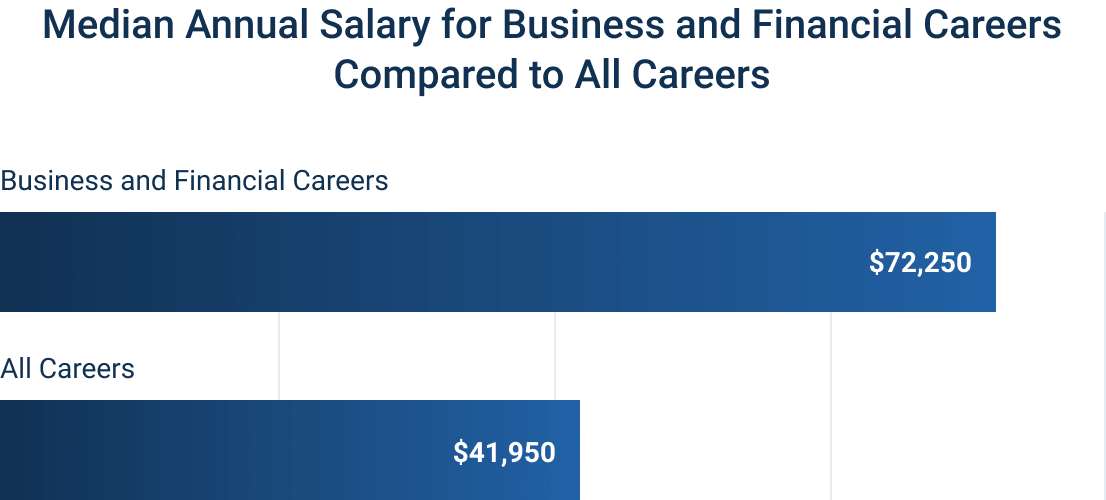
The online format can be more accessible for students from a wide range of majors, allowing them to fit courses around work, family, and other responsibilities. Online programs are especially popular with military service members, as moving frequently makes it difficult to enroll on campus. Choosing an online degree also means you have access to a wider range of program options rather than being limited to what's offered in your area.
While there are many benefits to earning a business degree online, students should also consider the potential drawbacks. A business program will only be worth it if it aligns with your personal and professional goals. Some may struggle to network with peers and professors or stay on track in an online setting. When you're attending class virtually, it can take a bit more work to make connections with classmates or your professor, and it may be harder to reach teachers remotely or contribute in class. It's also a significant time commitment and financial investment. If your degree won't pay off in a way that's important to you – whether that looks like a higher salary, a new job, starting your own business, or achieving your personal goals – it may not be worth the time and money you put in.
Why Trust Us?
27 Data Researchers
60,000 Degrees Researched Annually
20,000 Hours Spent on Research Annually
Launching Rankings Since 2009
Related Articles
2023 Best Online Business Management Degrees
Our 2023 lists of the best online bachelor's in business management degrees ranks programs according to annual tuition rates and alumni salaries.
By OnlineU Staff Writers | 2/9/2023

